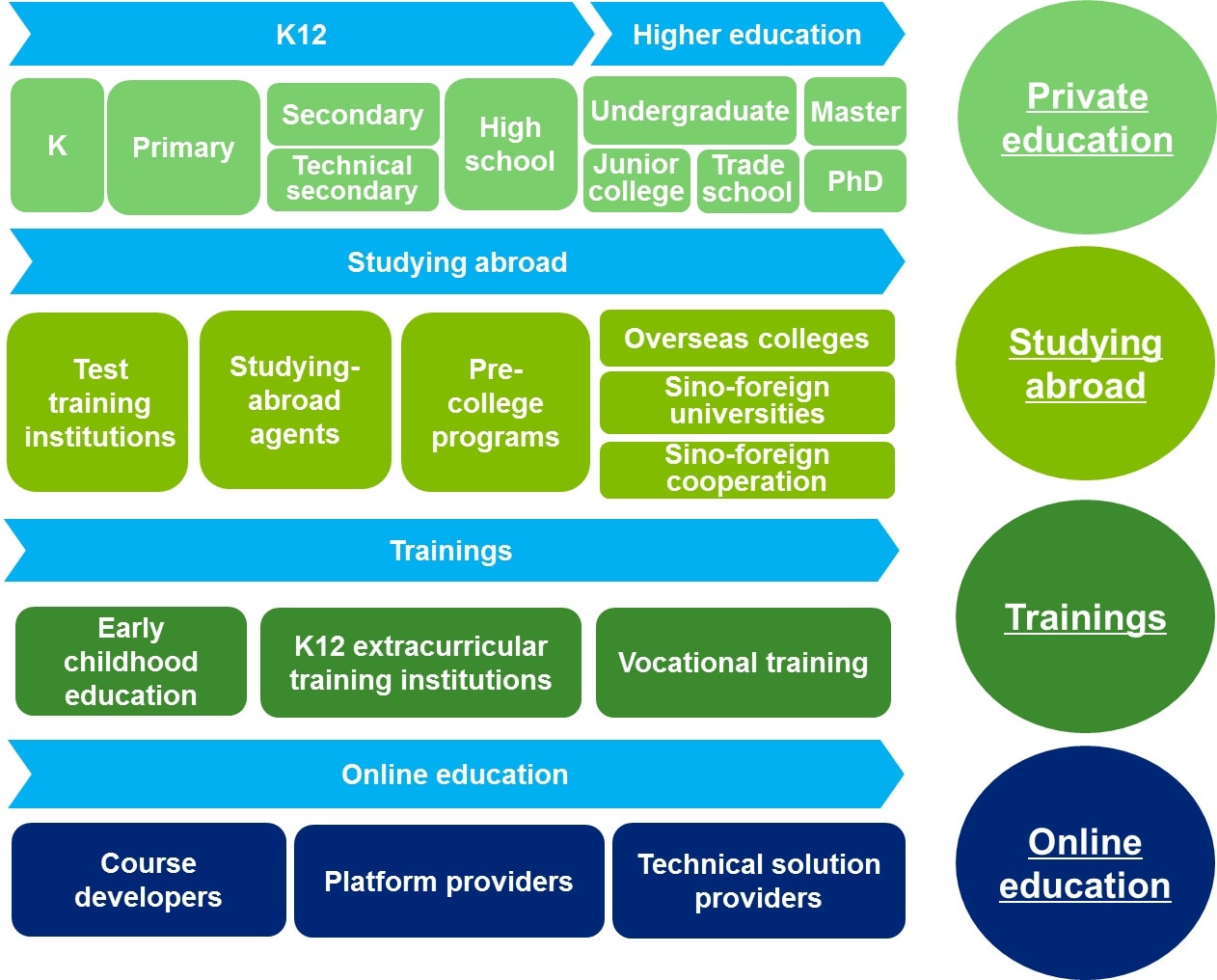
Teach in China: The Complete Guide
Learn about why you should consider teaching in China and what to expect
Introduction
Over the last thirty years, teaching English in a foreign country has grown from a field dominated by backpackers, university students on a gap year, etc. into a systematically developed sector where professionalism is mandatory. New as the industry is, there is still a long way to go, both within and out of China; nevertheless, the teaching abroad field has made some significant gains that those involved wish to continue. Better screening, professionalism, etc. creates a better environment for all.
Several decades ago, any light-skinned person from a native country could get a teaching job that would pay for his apartment, food, basic entertainment, and allow some savings. While all companies merely requested either candidates with a bachelor's degree, high school graduates, university students, and even those with forged credentials.
However, nowadays China has technologically and economically developed a more competitive environment that will not tolerant casual teacher employment, and tends to punishes such behaviors. For example, degrees of candidates can be verified using online services like degreeverify.com or National Student Clearinghouse; teaching salaries comparable to Western countries ensure that capable, motivated, experienced, and professional teachers are competing for jobs. Slowly, Chinese are understanding that championing Western systems of integrity (and practicing such codes), has rewards in ways that taking short-cuts and unethical practices do not.
Teaching English
Of all subjects, teaching English as a Second Language is the most demanded field. An estimated number of one billion individuals are learning English right now worldwide through certain means. Within China only, there are an estimated 200 million students of all ages. While the year-to-year growth rate of worldwide English learners may slow down, and high-paid areas like the Middle East, Japan, etc. may lose their comparative appeal, the demand for competent English teachers will continue to grow steadily in the following decades. Consider yourself fortunate if you are a native speaker of English and can teach the subject well. You will be in demand for your entire life. If you are taller, fair-skinned, have a posh accent, are well-dressed, possess a bachelor’s degree from one of the top-ranked world schools, and come from one of the nine native countries for immigration, you will have a high demand in China (and any other country). Even if you fall short of some of these preferences, as many of us do, there are plenty of examples of those who have a well-paid and fulfilling career, from slowly gaining a reputation for quality teaching and social behavior.
English Teaching in China
English teaching in China is highly fragmented. Unlike other industries where one or a few companies dominate, English teaching in China has many big, medium, small, and micro-companies. Big companies are not necessarily the best paid or best places to work.
Simply because of the balance of demand and supply, many people who can teach English well tend to get more work coming to them through referrals.
English is the common language at both official workplaces such as schools, big companies, and training centers, as well as informally at places like coffee shops that feature English teachers.
For immigration needs, a bachelor’s degree in any field, and a teaching certification (such as a CELTA) is the best guarantee to ensure getting offered an excellent full-time job and a working visa. In general, going to a brand-name school (not an online degree) in a well-known country such as the US, Canada, UK, Australia, and having a respected teaching license is the best way to be viewed as qualified.
Why Teach in China
China's booming economy is the foremost reason why you should choose teaching in China. Along with the reform and open policy implementation in 1979, China's annual gross domestic product (GDP) growth is steadily growing, year after year, with no slowdown in sight.
Many other countries regard China as an economic juggernaut. It is not an unusual scene in the top tier China cities that luxury cars crowd the street, new skyscrapers build-up, and high-end fashion brands such as Gucci, Louis Vuitton, Chanel become a common part of the shopping mall. Although the growth has slowed down during recent years, it still creates the economic and population equivalent of another Australia each year.
If you are considering teaching abroad, China is always a good option for you. The booming economy provides a variety of positions; but the sheer number of jobs and the rapidly expanding infrastructure ensures that once you come to China, obtain a proper work visa, and build a solid reputation for yourself, more advancement upwards will naturally follow.
Booming Economy Needs Better Education
Along with the developing economy, Chinese people gradually realized that schooling has substantial economic value. An education revolution promoting modernized education swept through China around the beginning of the new Millennium. Education reforms have increased in scale and intensity since then. The Chinese education market demand offers many different jobs to teach in China, from tutoring foreign languages to students of all ages to teaching all kinds of curriculum. With some of the world's top students, China also offers some advanced classes in mathematics, physics, economics, biology, etc. at top universities.
Both foreign and indigenous enterprises need native talent who can implement Western method of education in China. On one hand, the shortage of homegrown talent for multinational firms is continuing and pushing-up demand. Concurrently, the growth of foreign companies plans to bite a piece in China's domestic market after China entering WTO and seeks to lower import tariffs. On the other hand, local companies that intend to go global also need Chinese staff that understands the Western culture and business system. There is strong demand for both imported Western talent and fostering homegrown Chinese talent.
Meanwhile, the world's second-largest economy is changing its development model from traditional manufacturing orientation to service and high-tech manufacturing industry, which means more new and demanding jobs need better education to provide capable candidates.
Education makes it all possible; China has the demand and ample financial resources to pay. Best to situate yourself appropriately to take advantage of this booming market.

Modern Life Is Readily Available
China's comprehensive transportation network covers both people's travel and shipping conveniently and efficiently. The central government has invested enormous funding in city infrastructure construction. Modern buildings replaced dilapidated urban houses and farmland in the suburbs. City development, like thriving tree roots, expands ceaselessly.
Many people find the picturesque landscape and historical sites to be one of the most attracting factor for them to teach in China. Thanks to the convenient and favorable national transportation system, you can commute easily.
Back to ten years ago, it was hard to imagine that people could hang out with only a mobile phone rather than equipping with wallet, cash, keys, etc. Yet Chinese technology has developed so greatly that the imagination becomes the reality for everyone in the society. Paying through apps in China has turned into a standard gesture. Combining efficient logistics service with a sophisticated online shopping system, you can order everything online, from delivery food to domestic appliances, and receive the delivery within a few days, or even on the same day. Delivery and postage that people pay a premium for in the West come at low cost or even complimentary.

Does Teaching in China Worth It?
Many new graduates decide to start their careers as a teacher in China in order to make money to pay off student loans. Some of the ex-pats end up teaching in China because of their interest in Asian culture.
No matter what kind of intention you may have, teaching in China is meaningful for your career and even entire life, not only for financial reasons. International experience, personal experience, and global experience are all valuable. Many people have advanced their careers by learning Chinese, meeting contacts worldwide, and serving as an essential connection as our globalized world is developing.
Enhancing Personal Skills
Besides workplace skills, you can also learn Chinese, improve your communication skill, and get cross-cultural work experience through teaching in China. Those skills are highly transferrable and can apply in many industries--if not all industries.
Getting Cross-Cultural Work Experience
Cross-cultural experiences are useful in companies that have a multicultural working environment. Adding some cross-cultural experiences to your resume through teaching in China would be an excellent choice.
According to IFTF (Institute for the Future), cross-cultural competency is one of the ten most essential skills for the future workforce. It will soon be the norm for employers to build a work-team that consists of people from diverse cultural backgrounds.
Mastering a Foreign Language
Speaking a second language will improve abilities such as multi-tasking, problem solving, and decision making. Also, It is often intriguing to study another language, especially in it native speaking environment. When working in China as a teacher, you may find situations like sales and speaking with families still prefers Chinese as the working language, hence contributes to your possible motivation for second language learning.
Living and teaching in China can immerse yourself in a purely Chinese environment; learning Chinese will be much easier than at home. Curiously, you will find that many native people are just eager to help foreigners improve their Chinese proficiency.
Learning Chinese is difficult for many foreigners at the beginning. Many linguistic rules and ideas seem to be counter-intuitive and different from what a English speaker is familiar with. Nonetheless, as you gain familiarity and proficiency, your mind will adapt fast, and your ability to solve problems and communicate in Chinese will improve.
Improving Communication Skills
Another fantastic benefit of teaching in China is that it improves your communication skills. As a foreign teacher in China, mingling with English speaking and non-English speaking native students and learning to be effective communicators remains a common challenge, which trains one's communication skills effectively. Excellent communication helps develop the necessary skills and allows users to grab opportunities in the global market.
Better Teaching Career Path
If you want to be a teacher but do not have to teach experience, it might be hard to begin your career with a top level salary. However, relatively high-paid teaching jobs in China’s training centers are still available. After two years of experience, you may be qualified to work for schools with an international curriculum. You can get better benefits and more useful teaching experience then.
If your career path focuses on school management positions, teaching in China also worths it. An increasing number of international schools and international programs have sprung up in China to provide Chinese citizens with a global worldview. As a result of their westernized method of management, the demand for managerial positions rises accordingly.
The Truths about Teaching in China
When it comes to teaching in China, there are numerous stereotypes, lots of misinformation, and blatantly false advertising. Some of them are true indeed; however, the truth is, there are a surprising number of benefits that many teachers discover during teaching in China, and motivate them to stay and work harder as well.
The Education Industry is Booming in China
China's education industry is entering a golden age, expanding rapidly both in terms of industry size and market activity. Government policies, capital flows, frequent cross-border business, and technological innovation all drive China's education industry into longer prosperity.
According to Deloitte, China’s education market size will presumably reach about 600 billion US dollars by 2023, with a compound annual growth rate of 11.3% from 2018 to 2023.
Teaching Is a Respected Profession in China
Due to China's strong cultural and historical emphasis on education, teaching is a highly respected profession in China. Most Chinese believe that students should pay their teachers sincere respect, which has even formed a social norm that you can not easily detected in other countries.
Teaching in China is Fun But Also Exhausting
As a teacher, you must be well-prepared for your lesson, and you must always be 100% emotionally and mentally present for students, even if you are not feeling well. However, you are likely to feel a immense sense of achievement by building rapport with students and helping them to be proficient at the target subject.
Families respect dedicated teachers. Although the unmanaged state in the past decades expose many unprofessional and unqualified foreign ESL teachers, and leave many families a rather bad impression, parents and schools nowadays are learning how to identify excellent teachers from mediocre or lousy teachers.
Scams about Teaching in China
1. Too Good to Be True
Cheaters may seem too eager to hire you and offer you a high-paid salary, even if you lack a bachelor’s degree, teaching experience, TEFL certificate, teaching qualifications, etc.
2. Visa Scam
If your school is ready to hire you without a work visa, that would be a major scam. In the absence of a work visa, you will not be able to advocate for unpaid wages in an arbitration court. You will also not have the right to work, the ability to get a Chinese bank account, and many other small conveniences. These conditions are not favorable if you want to work in a foreign country.
If you get caught working on a tourist or student visa, you can be fined, put in an administrative holding facility (similar to jail) for up to ten days, or get deported.
3. Contract Does Not Match Verbal Promise
For instance, false recruiters promise you an international school position. Still, in reality, they start you off in one school then shift you to another and another without proper reason, cause, or your permission.

Teaching Jobs in China
Since the quantity of teaching job vacancies is obviously impressive, it is often not a question of whether you can get a job; but whether you can find a suitable and satisfactory school to teach in.
Getting familiar with all types of a teaching jobs in China can be helpful for you.
Teaching Kids in China
Teaching Kids in China is usually classified under preschool or kindergarten education. China’s preschool education industry started late and developed rapidly with the support of national policies. After several years of development, the early education industry is gradually moving towards standardization, specialization, systematization, and scientific management. China's childhood education market could exceed 300 billion yuan by 2020.
High-end early education organizations like international or bilingual kindergartens are the first option for foreign job seekers who want to teach kids in China.
With the releasing of the two-child policy, the number of newborns is growing rapidly, and the demand for early education is increasing correspondingly. Millennial parents, who have received higher education in China, attach more importance to education than the previous generation. They are more inclined to agree that early education plays a crucial role for kids and prefer to send their children to a more internationally-minded studying environment.
Classification of Teaching Kids in China
Job positions about teaching kids can be divided into two categories: kindergarten education and early childhood education.
| Classification | Description |
| Kindergarten Education | Full-time educational institutions for toddlers through six-year-old kids. |
| Early Childhood Education | Non-full-time educational institutions providing lessons in language studying, musical instrument training and so on. |
Teaching Requirements for Teaching Kids in China
Before you start your career, you should be qualified to get z-visa and apply for it.
For looking a job in the teaching market,TTJ noticed that these qualifications would increase your competitiveness:
- Relevant work experience in an international or bilingual institution
- Relevant Certification/qualification from the USA, Canada, UK, Australia or New Zealand
- Internationally recognized teaching certification (CELTA with the YL Extension is the best).
- Outgoing and caring personality, and a passion for children.
Teaching Salary of Kids in China
According to 'Teach in China: 36 cities & salaries 2020 Research Report', the average monthly basic salaries are as follows.
| City | Salary (RMB) | Salary (USD) |
| Tier 1 | ¥16,992- ¥23,310 | $2,427-$3,330 |
| New Tier 1 | ¥16,965 - ¥22,012 | $2,424-$3,145 |
| Other Provincial Capital | ¥16,599 - ¥23,126 | $2,371-$3,304 |

Teaching Jobs in Chinese International Schools
According to Annual Report of International School in China Policy and Market Research conducted by NEWSCHOOL INSIGHT MEDIA, 1300+ international schools in China apply American, British, or global education system. Their curricula are similar to the educational environment of the home country.
While few schools in China truly meet the stringent requirements of an international school certification, many are qualified to open international programs taught in English, prepare for AP, A-Level or IB Curricula, and expect students to take common exams such as AP Exams, A-Level Exams, IB Diploma Programme, TOEFL, IELTS, SAT I and II, etc.
Classification of Chinese International Schools
International schools can be divided into three categories: international schools for foreign nationals, privately-funded K-12 Schools offering international curricula, and international programs in public schools.
This sector is continuing to grow significantly, and it is said China has 200 million K-12 students. Parents spend up to 20% of their annual family income on their children, Xue Ning Lium the CEO of Jmdedu, said at EdtechX Europe conference in London, 2016.
Teaching Requirements for Chinese International Schools
Recruitment policies vary significantly between international schools, so you need to make sure you are in an advantaged position and actively check their policies. Some international schools are quite strict in employment, and only accpet qualified teachers with enough experience, while others are willing to hire teachers without the correct credentials.
Generally, employers prefer teachers with the following qualifications:
- Teaching experience greater than three years, preferably with the same employer.
- Relevant teaching experience in an international school or foreign language school, and extensive experience in an environment with multiple English learning needs.
- Relevant Certification/qualification from the USA, Canada, UK, Australia, or New Zealand.
While there is a broad salary range, international schools are usually the highest paid of all types of schools. Your qualifications and experience tend to determine the salary range that you will initially be and eventually reach.
According to 'Teach in China: 36 cities & salaries 2020 Research Report':
| City | Salary (RMB) | Salary (USD) |
| Tier 1 | ¥19,318 - ¥28,171 | $2,760-$4,024 |
| New Tier 1 | ¥18,357 - ¥25,765 | $2,622-$3,681 |
| Other Provincial Capital | ¥17,072 - ¥23,699 | $2,439-$3,386 |
Teaching Jobs in the Chinese Corporate Training Market
The corporate training sector has the highest demand for foreign teachers. As a mainstream business, it has nearly 300 million customers and over 50,000 training providers. Almost every major company in China has a division affiliated with HRs, trying to get their employees enhanced in terms of their English proficiency.
Classification of Chinese Training Market
The vast training market of China can be divided into several marketing groups: language training, overseas study preparation training, K-12 subject training, IT, management, financial & accounting training, and arts training.
Teaching Requirements of Chinese Training Market
| Position | Requirment |
| English Language Teaching Position | Native English Speakers (In principle from UK, U.S., Canada, Australia, New Zealand, Ireland, and South Africa) Bachelor degree or above (Degree needs to be authenticated by your local PRC Embassy) Two Years’related working experience. (Alternatively, bachelor degree or above holders in subjects like Education/Teaching major or have valid national or international level language teaching license can be exempt from it.) Age under 60 Non-criminal record |
| Non-English Language Teaching Position | Native Speakers of Taught language. Bachelor's degree or above. (Degree needs to be authenticated by your local PRC Embassy). Two years' working experience. (Alternatively, bachelor degree or above holders in subjects like Education/Teaching major or have valid national or international level language teaching license can be exempt from it.). Age under 60. Non-criminal record. |
Teaching Salary in Chinese Training Market
According to 'Teach in China: 36 cities & salaries 2020 Research Report':
| City | Salary (RMB) | Salary (USD) |
| Tier 1 | ¥18,746 - ¥25,374 | $2,678-$3,625 |
| New Tier 1 | ¥15,169 - ¥20,860 | $2,167 -$2,980 |
| Other Provincial Capital | ¥11,404 - ¥15,645 | $1,629-$2,235 |
Online Teaching Jobs in China
The size of China's online education market has been growing steadily over the past five years as a result of the rapid development of Internet technology, the increasing social attention to education, and the increasing economic growth. According to iMedia Research, the scale of China's online education users will reach 309 million, and the e-learning market size will hit 453.8 billion yuan in 2020.
There are about 100 Chinese-based online education companies, and the number is continuing to grow rapidly. China's online teaching jobs can be divided into the following areas:
| Classifiction | Status Quo and Trends |
| K-12 Education | As parents after the 1980's and 1990's developed education awareness, K-12 online education is increasingly demanded. The share of K-12 in the online education market increased to 20.7% in the first half of 2019 and will have around 28% of the online education market by the end of 2022. |
| Higher Education | Higher education and vocational training are the major parts of the online education market, which takes a share of nearly 80% in the E-learning market. |
| Language Learning | Mastering a foreign language is an essential skill for young Chinese nowadays, and the demand keeps growing. Compared to traditional offline language education, online language education is available in a variety of forms, and users can easily connect to language teachers around the world via the Internet, making it more efficient and convenient. In the last two years, it has become a trend for people to start learning languages from foreign teachers on a one-to-one basis. |
| Whole-Person Education | While whole-person education is an infant and niche market in China, more Chinese parents realize that mastering critical thinking and real-world skills in science, technology, engineering, arts, and mathematics is one way to increase the competitiveness for their children in the future. Relevant classes can be provided online. |
University Teaching Jobs in China
Teaching positions at colleges and universities are often coveted among foreign teachers. You may teach English classes or other subjects in English. These jobs typically include living arrangements, generous paid time off, and plenty of freedom in the classroom.
Many teachers have ample time to immerse themselves in the university environment or take another employment simultaneously.
Teach in China Programs
If you do not have a college degree but are desperate to go to China to teach English, you will be glad to know that there is a legitimate way to get permission.
Although you will not be able to work as a full-time teacher, you can do an internship. In China, it is legal to be an intern on a student (X) visa. Working with a Student (X) visa is the only legal way to teach English in China without a degree.
The process involves being enrolled into an English-taught international program at a Chinese university. In order to get the work permit, a student of such programs must refer to a prospective employer to get an internship arrangement, apply for approval from the government to get an internship visa that adds on to the student visa (X-Visa). The university should issue a Consent Letter; the hiring company should issue a Certification letter; then the student must go to the police station, where the police will check whether the company has the permission or not to recruit foreigners. If the company is fully capable of recruiting foreign students, the police will mark “work-study" on the visa. The hiring company cannot be changed; the student will have to pay a high fine if they violates this law.
In practical terms, a student can receive equal pay for equal work, which comes to about 200-300 RMB per teaching hour, for a maximum of 8-10 hours per week. While this salary may seem modest, it can often be enough to pay substantially for the cost of education and ensure a job after graduation.
Teaching During Summer
Summer and winter camps often last from one week to one month. The work environments can be intense. For those interested in teaching in China, but unwilling to make a long-term commitment, they may find these programs attractive.
Usually, a teacher will have to teach up to nine hours a day during the holiday camps. However, if the teacher is a good fit in this environment, they can make over 30,000 RMB during the programs, with little money spent on a month's worth of living costs, etc., since holiday camping programs usually cover teachers' living costs.
Teaching Jobs in China for a Non-Native Speaker
Teaching Spanish in China
Over the past 15 years, China's demand for Spanish-language education has increased thirty-fold. In China, job opportunities for Spanish-speaking people are growing. There is a high demand for teachers and tutors because personnel resources in Spanish education is not enough yet.
"The workload for Spanish speakers has been growing, especially for teachers. China is both a challenge and a great business opportunity,” according to Lu Jingsheng, the Government of China's national coordinator for Spanish-speaking countries.
Spanish teaching jobs are usually available in Spanish training centers, international schools, and foreign language study schools at universities.
Teaching French in China
French remains the language of high art, intellectual literature, and diplomacy. It is also a language widely spoken around the world. Curricula such as the IB, or even typical US, UK, and Canadian curricula in international schools teach French language and culture.
French teaching jobs are usually available in French training centers, international schools, and foreign language study schools in universities.
Teaching Math in China
Math teaching positions are usually available in international schools. As a Math teacher, apart from delivering math lessons following an overseas syllabus, you need to prepare teaching plans, enrich the current curriculum and teaching material, tutor students to perform better, etc. In short, traditional Chinese education focuses on learning each step in problem-solving and practicing exhaustively. Western education focuses on more analytical reasoning, critical thinking skills, creativity, etc., which are the qualities math teachers is supposed to develop on their students.
A teacher should have a bachelor's degree or a more advanced degree in a math-related field as well as related teaching experience. Nothing beats a charismatic teacher that can bring insight into an ordinarily dull subject.
Teaching Music in China
China has been emphasizing the importance of music and arts education. Many schools offer piano or other musical instrument lessons as extracurricular courses.
A teacher that has a Western pedigree (especially from top schools like Julliard, Curtis, etc.), experience playing in top performance halls in Europe and the US, a thorough knowledge of excellent instruments within a discipline (specifically Steinway pianos, etc.), and can teach the deeper, finer aspects of art will have a stronger competitive edge over domestic Chinese teachers.
IB Teaching Jobs in China
The IB program has gained worldwide acclaim due to the high quality of admissions and the high reputation of the program, which has led to a growing number of IB schools. There are 242 IB schools in China, the highest number in Asia, with 86 schools offering IB PYP curricula, 42 schools offering IB MYP curricula, 112 schools offering IB DP curricula and 2 schools offering IB CP curricula.
If you are interested in IB teaching jobs, just go ahead, there’re enough relevant jobs in different cities and schools.
How to Teach in China
There are three ways to help your search for a teaching job in China:
Through Online Job Postings and Recruiters:
There are several options when searching for teaching positions online. For example, you can check out teaching-focused websites directly like TopTutorJob.com/jobs.
Recruiters working for the websites can help you pick the most suitable position for you on their job board. They are adept at capturing job information among the job market and can give you professional career advice. Generally, the service should be free for job seekers. Recruiters have a vested interest in placing candidates to good fits. Such an incentive system works most of the time to ensure candidates and schools find a proper match.
Contact Schools Directly
If you do not trust job agencies, the best way to find a job for you is to directly contact the school.
While this process takes more effort and patience on your part, you may enjoy the increased control over the pace of your career.
Private language schools recruit year-round, but public schools and universities typically recruit twice a year to coincide with the start of the two main semesters, spring and fall. Most contracts start in the fall semester, while you will also find some job ads in the spring.
Through a Friend Who Lives in China
An acquaintance or friend who lives in China will also help your find a teaching job in China because they are familiar with the local market. They usually do not make or lose money from you, but their job searching is relatively random. Ideally, a good friend advocates in your best interest and can find out information and insight that recruiters either do not know or would not tell you.
Teaching Jobs in China Without a Degree
Do You Need a Degree to Teach in China?
The short answer is YES - you cannot teach English in China legally, without a degree that has been certified by the government.
In reality, however, you may find many people take second or even third jobs to supplement their income. Many employers may employ people who have work visas elsewhere or come from countries with non-native speakers (including Russia, Ukraine, etc.). Improper visas and illegal work do exist. But the government punishes such actions more strictly years by years.
While China, and almost every country, has had people working on improper visas for decades, there have been recent crackdowns, as police in major cities like Beijing are concerned about national security before political events, and now China is concerned about Coronavirus risk from outsiders. Most teachers try the safe route of online teaching. Online teaching has a low threshold to enter, which allows you to be an independent contractor, and increase or decrease hours, depending on your current work situation. Yet notice that your status as an independent contractor rather than a legal employee on a work visa and salaried position, probably means you will not get health coverage, etc.

Cost of Living
When looking for a job, foreign teachers need to consider the city, salary, and cost of living.
The average cost of living is as following:
Numbeo is an invaluable tool providing world living conditions, including cost of living, housing indicators, etc.
Of course, the real litmus test is personal experience through trial-and-error. You can only fully see how much money you need to fit your lifestyle and feel comfortable after you settle down in a particular city, work there, make money, spend money, and save money, then are you able to decide whether it is worth it to stay longer.
Basic Introduction to China
As we all know, China is an ancient country with a history of more than five thousand years. A common misunderstanding of many foreigners is that the country lacks cultural diversity. In fact, in addition to 55 ethnic minorities, China varies significantly from city to city and province to province. Upon closer examination, the old stereotype of "everywhere is the same" will diminish, and people will find provinces and cities all have their own distinct cuisine, dialects, and cultures.
Climate/Weather/Temperature
China is a vast country with a complex and diverse climate.
The southeastern part of China is deeply influenced by monsoon, the monsoon climate is remarkably humid: simultaneously rainy and hot in the summer, but mild in the winter.
In the northern cities, winters, especially in the north and West, are cold and dry, while spring is warm, summers are hot and sometimes rainy.
Cuisine
Chinese has a long history of food culture. Chinese people attach great importance to food, much more than you can imagine. As the saying goes, "people are food-oriented". There are eight major Chinese regional cuisines from eight provinces, each with specific features: Sichuan, Shandong, Anhui, Jiangsu, Zhejiang, Fujian, Hunan, and Guangdong.
Exotic cuisines such as hamburgers and french fries, ice cream, pizza, coffee shops, craft beer, Korean food, sushi, has also become popular in China. With the increasing number of fusion restaurants, there are so many different foods in almost every location, which brings you the taste of homeland.

Language/Dialects
The official language in China is Mandarin. In Chinese, this is pronounced Putonghua (普通话).
Although usually you are not required to speak Mandarin in the workplace, it is beneficial to speak such a widespread language in the workplace, restaurants, subways, to taxi drivers, etc.
The development of Han Chinese society has been characterized by varying degrees of differentiation and unification, resulting in the gradual emergence of a Chinese dialect. People speaking each dialect cannot speak to each other, so distant dialects remain, especially in Min areas.
The centralized Chinese government has worked hard to make sure the Mandarin dialect is spoken in schools, at official government locations, etc. However, almost everyone speaks a second or third dialect at home, etc. that may differ considerably from Putonghua. Many dialects in different parts of China are so different that one group of Chinese people cannot understand other Chinese speaking their respective mother tongues.
Traditionally, Chinese language uses symbols to represent meaning. Since 1949, the Chinese government has also developed alphabetic marking system named Pinyin to transcribe words by their pronunciations, and allows for more efficient typing on a computer screen.
Holidays in China
China and other countries treat holidays very different from the West. Whether you are in a public school or a language training center, you can only take leave on legal holidays. Fortunately, there are plenty of public holidays when your students are out of school in China, and you have time for a long vacation.
In contrast to the United States, where ten days of paid holiday is the norm, many people working for public schools are surprised that China has up to six weeks of winter holidays and summers off. This disparity results in an extra four months of vacation, sometimes at full pay.
Transportation
Public transportation prices are quite affordable in China. Buses and subways are available in almost any city, and work around 20 hours a day, 365 days a year.
China has the world's largest train network with the world's highest mileage and new high-speed train lines opening almost every week or month. These high-speed expresses can move almost as fast as an airplane, have much fewer delays, and are much more comfortable to take (especially with sleeper cars).
As for airplanes, many flights around China can be booked for around 100 USD, especially if flying from a major airport to another major airport, and the booking done several months in advance.

Culture Shock
Chinese culture emphasizes the collective, discipline, and cooperation, while individuality, freedom, and self-development are the typical characters in Western culture. You may encounter many strange things that you may not be familiar with and cannot understand immediately, even if you know Chinese culture in depth.
As always, culture shock can sometimes be frustrating, but take it with a humorous mind, always keep learning new things, and you will be alright.
How to Apply for a Teaching job in China
In order to apply teaching job in China, you need get your Z-Visa. (Check our Career Advice for more detailed description on working visa)
Work (Z) Visa Application Process China 2019
The Z visa is valid for 90 days to enter China after it is issued. You then have a legal stay of 30 days, and during that time, you must report for work and apply for residency.
Blog Recommendation
Wondering which city to choose to teach in? See our Teach in Series to understand more about your target city!
Check City & Salary to see the salary data of each city!